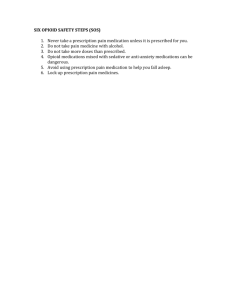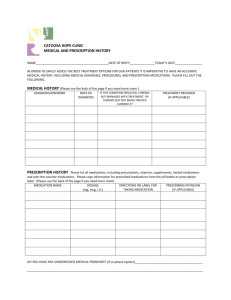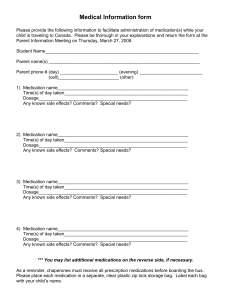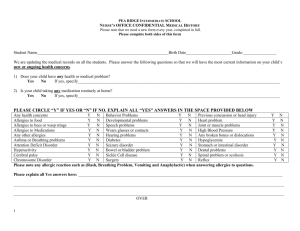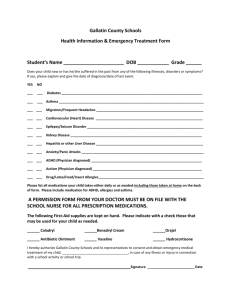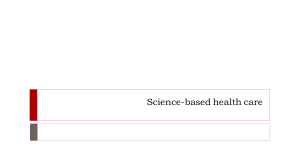ohr_asset_499478
advertisement
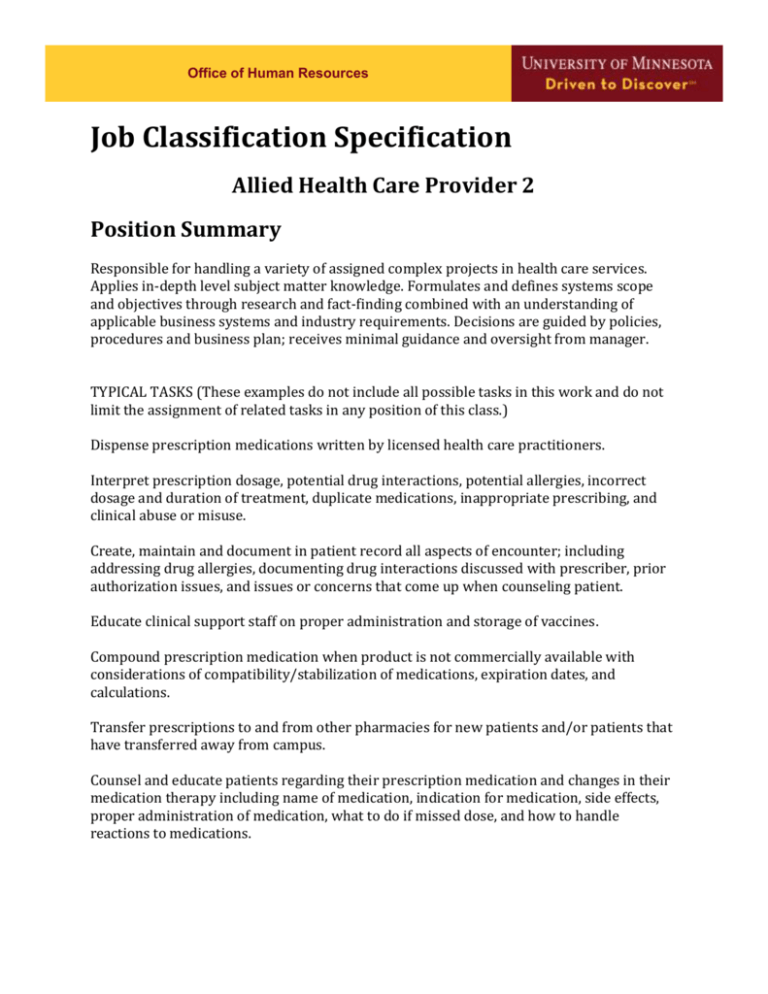
Office of Human Resources Job Classification Specification Allied Health Care Provider 2 Position Summary Responsible for handling a variety of assigned complex projects in health care services. Applies in-depth level subject matter knowledge. Formulates and defines systems scope and objectives through research and fact-finding combined with an understanding of applicable business systems and industry requirements. Decisions are guided by policies, procedures and business plan; receives minimal guidance and oversight from manager. TYPICAL TASKS (These examples do not include all possible tasks in this work and do not limit the assignment of related tasks in any position of this class.) Dispense prescription medications written by licensed health care practitioners. Interpret prescription dosage, potential drug interactions, potential allergies, incorrect dosage and duration of treatment, duplicate medications, inappropriate prescribing, and clinical abuse or misuse. Create, maintain and document in patient record all aspects of encounter; including addressing drug allergies, documenting drug interactions discussed with prescriber, prior authorization issues, and issues or concerns that come up when counseling patient. Educate clinical support staff on proper administration and storage of vaccines. Compound prescription medication when product is not commercially available with considerations of compatibility/stabilization of medications, expiration dates, and calculations. Transfer prescriptions to and from other pharmacies for new patients and/or patients that have transferred away from campus. Counsel and educate patients regarding their prescription medication and changes in their medication therapy including name of medication, indication for medication, side effects, proper administration of medication, what to do if missed dose, and how to handle reactions to medications. Allied Health Care Provider 2 Operational Role Modifies practices and procedures to improve efficiency and quality; searches for better ways to effectively achieve end results by, for example, scheduling work steps, arranging/ re-arranging the way work is generally performed, and adding or deleting elements of processes as necessary. Scope of Measurable Impact Actions tend to affect a department or critical project outcomes; performance results tend to relate to efficiency, degree of waste/cost overruns, quality/continuous improvement, timeliness, and resource allocation/effectiveness. Independence and Decision-Making Mostly works independently according to standard operating procedures (may develop some processes/procedures); generally responsible for keeping processes moving in a productive direction, and will look for supervisory approvals when changes to process steps are considered and when additional resources for task completion are required. Complexity and Problem Solving Problems are increasingly difficult to identify and are sufficiently difficult that they cannot be solved using existing practices and procedures; may have to respond/adapt to changing conditions or circumstances, requiring creativity and the development of new approaches when resolving issues. Required Qualifications Requires a BA/BS degree with 8 years of experience; may require advance degree with 6 years of experience or a terminal degree with 2 year of experience. Leads a small homogeneous department or larger process-oriented area whose members perform like activities. Most often requires professional health care certification, registration, or state licensure. Effective 6/1/15


